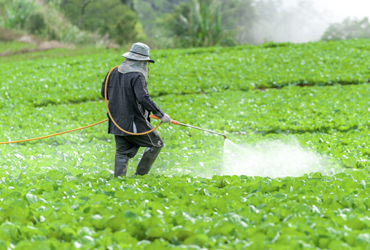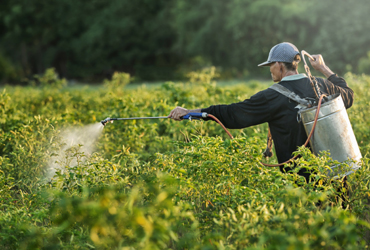The use of Insecticides is imperative
- Manish Kumar
- Dec 7, 2022
- 2 min read

Professor Kathleen Lewis, Professor of Agricultural Chemistry at University of Hertfordshire's Department of Human and Environmental Sciences (HES) and Research Leader for the Agriculture and Environment Research Unit (AERU), says the use of Insecticides is imperative to that goal. And that their continued use is one of the only ways that farmers can ensure the wellbeing of local ecosystems and rural populations.
She said: 'Without Insecticides it has been estimated that global food production could fall by as much as 35-40%, increasing the cost of food and threatening food security. However, their use does involve potential risks to human health so pesticide policies, particularly those of the developed world, advocate the sustainable use of these chemicals to minimise the risks and maximise the benefits
'And as well as their primary use, Insecticides also deliver other benefits such as reducing the labour, fuel and machinery required for crop protection activities which have a wider, positive impact on the environment.'
Realistic and pragmatic
Prof Lewis argues that instead of a total ban on Insecticides, a more realistic and pragmatic approach is in order. This includes continuing to heavily regulate the industry, having robust checks on the manufacturers and improving transparency whilst sharing knowledge on the different Insecticides available, using tools such as the University of Hertfordshire's Insecticides Properties DataBase (PPDB). She added: 'Evidence-based risk assessment is fundamental to protecting human health and ecosystems from the possible adverse effects of pesticide exposure. In recent years there have been considerable scientific advances in the way in which regulatory pesticide risk assessments are conducted which means they are safer than ever.' These advances include the recent European Food Safety Authority (EFSA) guidance for undertaking risk assessments for honey bees, bumble bees and solitary bees following rising concerns over the global decline in pollinator populations.
Reducing food loses
Prof Lewis concluded: 'Growing food in a sustainable way means adopting practices that produce more with less in the same area of land and using natural resources wisely – the use of Insecticides is fundamental for these practices. Using Insecticides means reducing food losses and means better harvesting. 'Of course, there are always risks associated with using such chemicals, but the answer is to heavily regulate the industry and increase transparency, not to ban their use. The scientific evidence time and again demonstrates the benefits for using Insecticides far outweighs the risks.'










